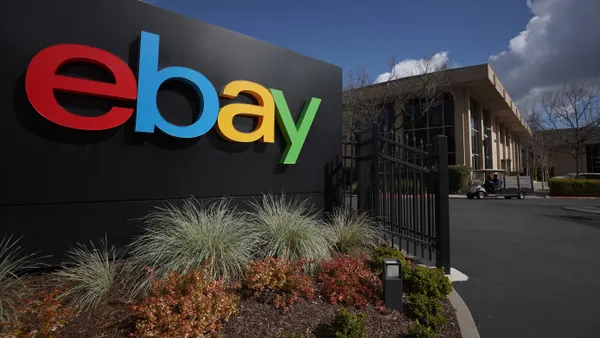Brief:
- Mobile commerce this year will hit record highs as online events like Amazon's Prime Day and Alibaba's Singles Day may help to extend the holiday shopping season for consumers who are more likely to avoid stores during the pandemic, analytics firm App Annie predicts.
- App Annie estimated that Singles Day on Nov. 11 will see sales of more than $45 billion — to become the biggest shopping day in history — after retail sales in China rebound from the COVID-19 pandemic.
- The holiday season will continue the upward trend in time spent on mobile, something that has accelerated during the pandemic. The amount of time spent on Android devices will surge 50% to almost 1 billion hours in Q4 from a year earlier as more people use their smartphones to shop, per App Annie.
Insight:
App Annie's optimistic outlook for the holiday shopping season is based on recent trends that indicate how much people have used their smartphones for transactions. Among those trends, online payment company PayPal reported in Q2 its best quarter as payment volume rose 29% from a year earlier. Scannable QR codes and contactless payments in the PayPal and Venmo apps have been popular among consumers who are practicing social distancing to help stop the spread of COVID-19, according to App Annie.
Shopping apps in Q2 saw weekly sessions that were 25% higher than the peak levels of the 2019 holiday season, a harbinger of strong growth ahead. App Annie predicts grocery app usage will remain elevated as shoppers use their mobile devices to look at store inventories and for other features like self-checkout. With many retailers offering buy online, pickup in-store services, mobile shopping will be popular as consumers plan their Thanksgiving meals.
With the weather getting colder, food delivery services like Uber Eats, DoorDash and Grubhub will see higher app usage as consumers continue to avoid dining inside restaurants, App Annie expects. The researcher saw a 45% jump in average weekly sessions for food and drink apps in Q2 from six months earlier, and activity is likely to remain elevated until more restaurants are allowed to expand their seating capacity and consumers feel more comfortable going out to eat.
Amazon hasn't yet announced the rescheduled date for Prime Day, which typically occurs on July 15 to drive sales during the slower summer season, though press reports indicate it will happen in October. The coronavirus pandemic led the company to postpone the yearly shopping event, which is only available to members of its Amazon Prime service, as it grappled with a surge in online ordering and longer shipping times. The event is likely to draw shoppers who are more budget-minded because of pandemic uncertainties that also may limit their visits to brick-and-mortar stores.













